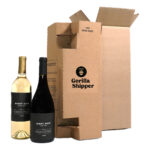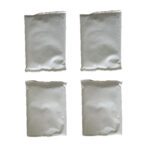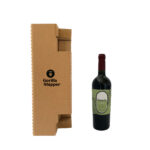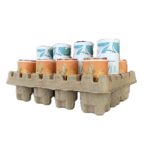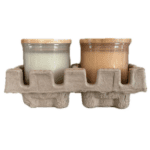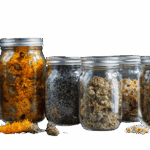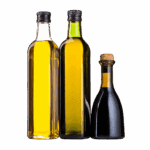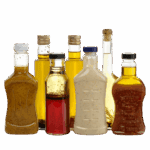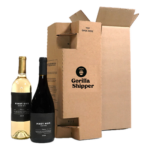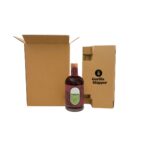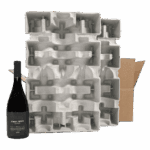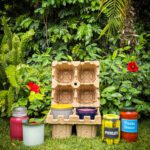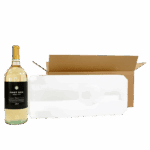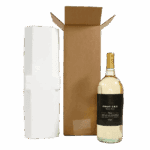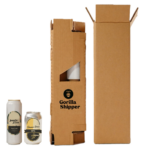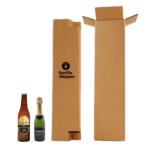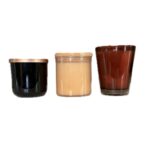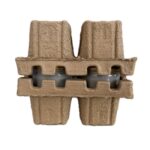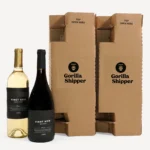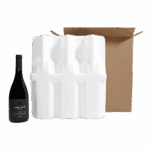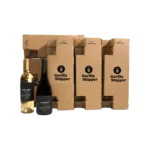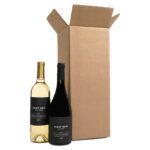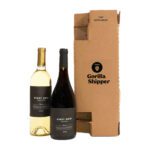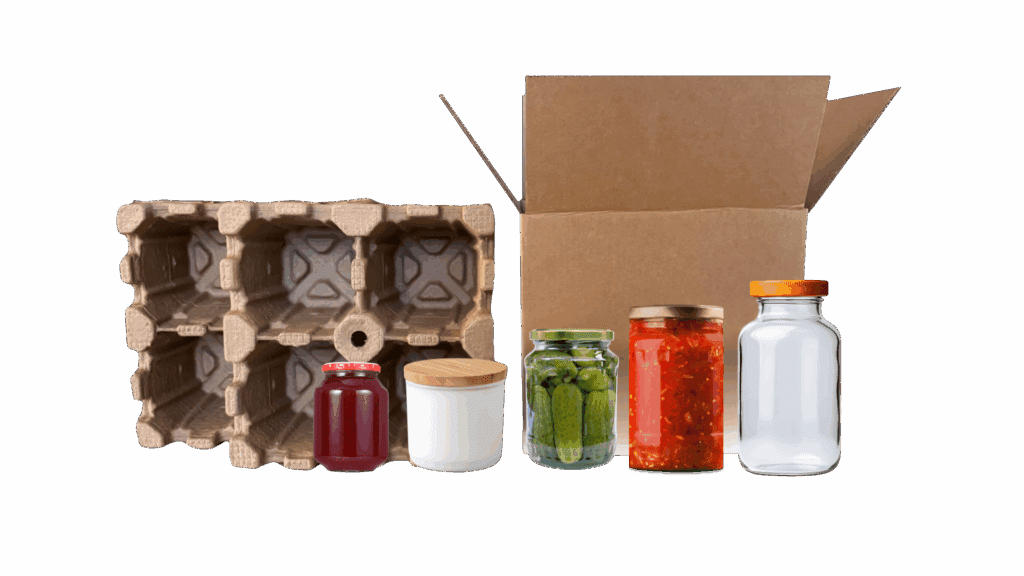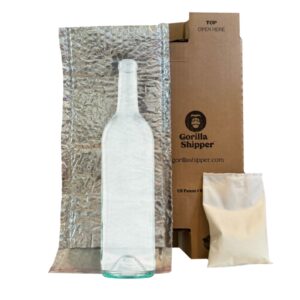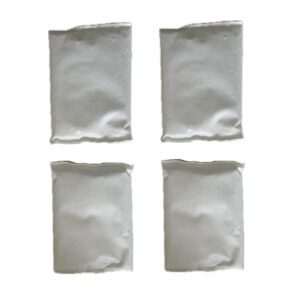Creative Uses and Applications for Winemaking Waste
There’s something about the winemaking process that doesn’t get a lot of attention. Making wine creates massive amounts of waste. This waste, commonly known as grape pomace, includes skins, pulp, seeds, and stems that remain post-pressing.
Given the scale of global wine industries, the volume of this winemaking waste is noteworthy. Unlike other agricultural leftovers, grape pomace struggles to find purpose in animal diets or as compost, often ending up in landfills with detrimental effects.
As industries pivot toward sustainability, winemakers are finding creative ways to repurpose these remnants. Here are a few practical applications that reduce waste and add value in unexpected ways.
1. Agricultural and Horticultural Uses
Grape pomace, vines, and wine leaves create winemaking waste, an untapped resource with potential far beyond the cellar. Among the innovative solutions emerging, the agricultural and horticultural industries offer some promising applications.
Transforming waste from wine production into compost or soil amendments breathes new life into vineyard soils, enhancing their vitality and productivity. This nutrient-rich byproduct adjusts soil pH favorably and returns beneficial organic matter to the earth.
Furthermore, when spread as a mulch, it serves a dual purpose. It can conserve moisture and keep those pesky weeds at bay, all while slowly releasing valuable nutrients as they break down. Beyond the vineyard, it finds purpose in livestock nutrition.
Specifically, grape marc becomes a prized feed for beef cattle, offering a blend of fiber, protein, and bioactive compounds, like condensed tannins, that can enhance meat quality.
2. Energy Production
The alchemy of turning winemaking waste into energy showcases the innovative spirit driving sustainable practices. As the wine industry searches for greener solutions, fermenting sugars in grape pomace to produce ethanol emerges as a compelling narrative.
This bioethanol, part of the broader biofuel category, represents a leap toward cleaner, renewable energy sources. The process involves microbial fermentation, transforming biomass into fuel using agricultural residues, food, and municipal waste.
Grape pomace, an often-overlooked byproduct of wine production, holds potential as a viable feedstock, especially for wineries near biofuel generation plants. Beyond ethanol, the journey of pomace doesn’t end there; it can also power the creation of biomass energy.
Whether through direct combustion or anaerobic digestion, the methane from decomposed remains can light up homes, closing the loop on waste. Adding to this exciting frontier, industry giants like TotalEnergies have developed renewable fuels from wine byproducts, significantly cutting carbon emissions in sectors such as racing.
3. Nutritional and Food Products
Once deemed surplus, winemaking waste is now finding a new lease on life in nutritional and food products. After undergoing processing to mitigate potential toxicity, it serves as a rich source of antioxidants for cows, sheep, rabbits, and horses, enhancing feeds with superior dietary value.
However, grape pomace’s low digestibility, fiber content, and phenolic compounds make it less suitable for pigs and poultry. Beyond the farm, grape pomace steps into the realm of food additives, boasting extracts teeming with antioxidants.
These natural preservatives or colorants safeguard against spoilage bacteria and enrich foods with health-promoting polyphenols. Potent antioxidant properties found in red grape skins are harnessed in dietary supplements, supporting weight management and cardiovascular health.
Culinary innovation also spills over to food and nutrient manufacturers who repurpose waste from wine production into consumer-grade ingredients. Spice blends and baking mixes are now viable options for sustainable food production.
4. Cosmetics and Health Products

The multifaceted applications of winemaking waste can enhance beauty and health regimes. Skincare products leverage antioxidant-rich extracts from this waste. Grapeseed oil offers undeniable benefits, such as anti-aging properties, skin barrier strengthening, and inflammation reduction, increasing consumer appeal.
Abundant in vitamin E, it hydrates and helps plump fine lines and wrinkles. With this capability, it is a valuable ingredient for those seeking youthful, radiant skin. Topical applications are not the only benefits. Grape pomace is a potent supplement for internal health issues as well.
Its wealth of resveratrol and phenolic compounds bolsters antioxidant capacity, supports cardiovascular health, and can prevent chronic diseases. Furthermore, the humble grape seed transforms into an effective ingredient for exfoliant scrubs, promoting cell regeneration for clean, soft skin while lightening discolorations.
Not to be overlooked, hair care products enriched with waste from wine production nourish the scalp and hair. Grapeseed oil, in particular, conditions and moisturizes, fostering a healthy environment for hair growth while tackling issues like dandruff and hair loss.
5. Industrial Products
Innovative strides in sustainability have led to the discovery that winemaking waste, a byproduct often overlooked, harbors the potential for revolutionizing industrial products. Research into grape pomace is uncovering its capacity to produce biodegradable plastics and packaging solutions.
Unlike traditional plastics, which require synthetic stabilizers to avoid brittleness from prolonged exposure to environmental factors, polyphenols found in grape material offer a natural alternative.
When integrated into polypropylene, this grape-derived powder significantly enhances the durability of the plastic. Therefore, it presents an eco-friendly option that competes with, yet does not entirely match, the efficacy of commercial stabilizers. Grape pomace has high phenolic content that provides edible packaging benefits as well.
From single-use seasoning pouches to protective wraps for cheese and meat, these edible liners signify a leap toward reducing food packaging waste. Additionally, the adsorptive qualities of pomace make it a valuable resource in water purification efforts, effectively removing contaminants and promoting cleaner water sources.
6. Crafts and Building Materials
The potential of winemaking waste transcends the vineyard, finding a place in our homes and buildings with innovative and sustainable applications. The fibers extracted from grape pomace share similarities with wood, making them an excellent material for crafting specialty paper that boasts both quality and environmental benefits.
Further research into how this byproduct can enhance the construction industry is underway. Utilizing grape pomace as an additive in brick production for its insulating properties may revolutionize building materials with an eco-friendly twist.
Oak wine barrels require replacement every few years due to their diminished flavor-imparting capabilities. By repurposing them, we can find new life in the form of furniture and decorative items. These pieces introduce a rustic charm to any setting and embody sustainability by repurposing what otherwise would be considered waste.
Moreover, wine bottles and corks are included. They are creatively integrated into building and decoration projects, showcasing a unique versatility and aesthetic appeal. This exploration into the reuse of waste from wine production demonstrates a commitment to environmental stewardship while offering practical, stylish solutions for everyday living.
7. Fashion Products
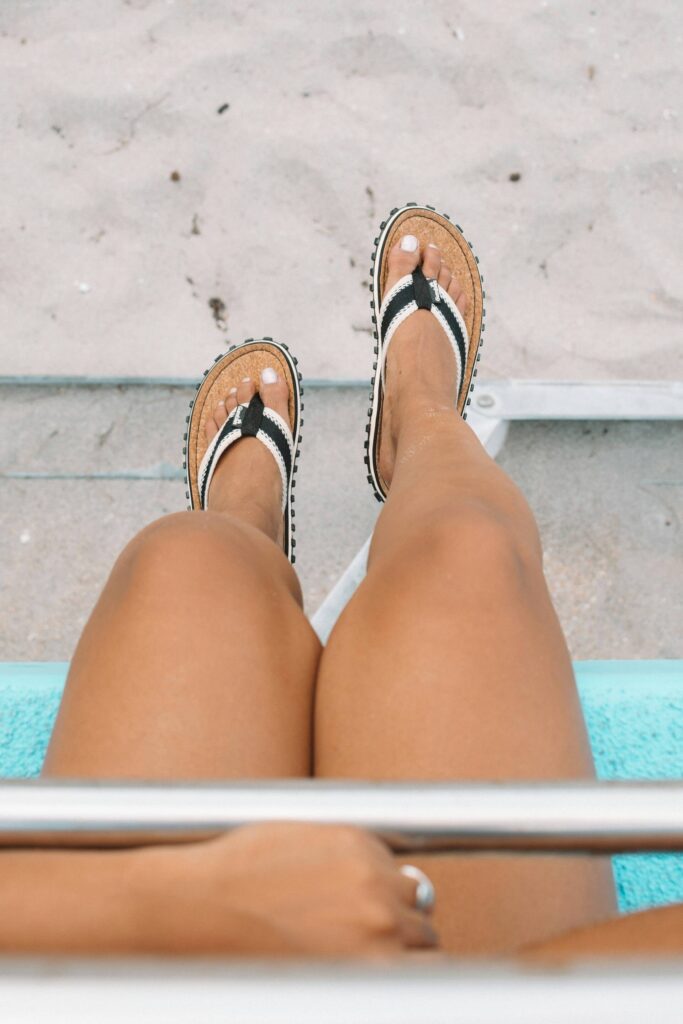
The innovative use of winemaking waste marks a new chapter in the fashion industry as it transitions toward sustainability. Textiles dyed with grape skins are not only a testament to creativity but also to environmental responsibility.
The vibrant hues of anthocyanins extracted from the sediment of grape skins transform wool and silk into brilliant shades of violet, offering aesthetic appeal and durability in light and wash fastness. Beyond textiles, the practicality of recycled wine corks in craft fashion accessories, such as upcycled necklaces, bracelets, and keychains, tells a unique story.
Eco-Friendly Shoes
Footwear also steps into the spotlight with sustainable designs. These lightweight, versatile shoe styles boast durability and comfort while reducing our environmental footprint. Its natural resilience and ability to mold to your foot shape ensure personalized comfort and support.
Anyone seeking relief from foot or back pain should take note. With noticeable shock-absorbing qualities, you can protect your feet during walks on hard surfaces, reducing fatigue and enhancing the overall walking experience.
Handbags and Stylish Clothing
The fashion industry continues to turn heads with sustainable yet stylish handbags and clothing articles. Durable and functional, cork handbags are sought-after by busy trendsetters, allowing seamless transition from work to leisure activities.
In the realm of clothing, its versatility shines through in unique apparel items. From the soft touch of cork fabric in simple shawls and accessories to the innovative use of this material in belts and hats, cork is redefining fashion norms.
8. Environmental Remediation and Enhancement
Every year, the wine industry generates massive amounts of waste from wine production. Rather than viewing this byproduct as mere refuse, innovative approaches have transformed it into a formidable player in ecological health.
Utilizing winemaking waste for phytoremediation, we can detoxify soil by removing harmful pollutants with grapevine cuttings. This method not only cleanses the earth but also repurposes the waste.
Additionally, the carbon capture capabilities of vineyard soils are remarkably enhanced when enriched with composted grape pomace, mitigating carbon footprint effectively.
With the conversion of grape residues into biochar for water filtration, the process purifies water and contributes to a circular economy. Furthermore, grape marc, the solid waste from wine production, is utilized in erosion control, showcasing its utility in preserving natural landscapes.
Go Green with Gorilla Shipper
Innovative approaches to managing winemaking waste are more than just about addressing environmental concerns. They represent a significant shift toward leveraging waste from wine production to create value-added products.
Are you a winemaker searching for greener solutions? At Gorilla Shipper, we offer eco-friendly packaging products for wine bottles and cans of all sizes. Our biodegradable Hexabox and Pulp shippers are ISTA 6-FEDEX-A test-certified and approved. Contact us for customized packaging solutions. Buy in bulk and save!

